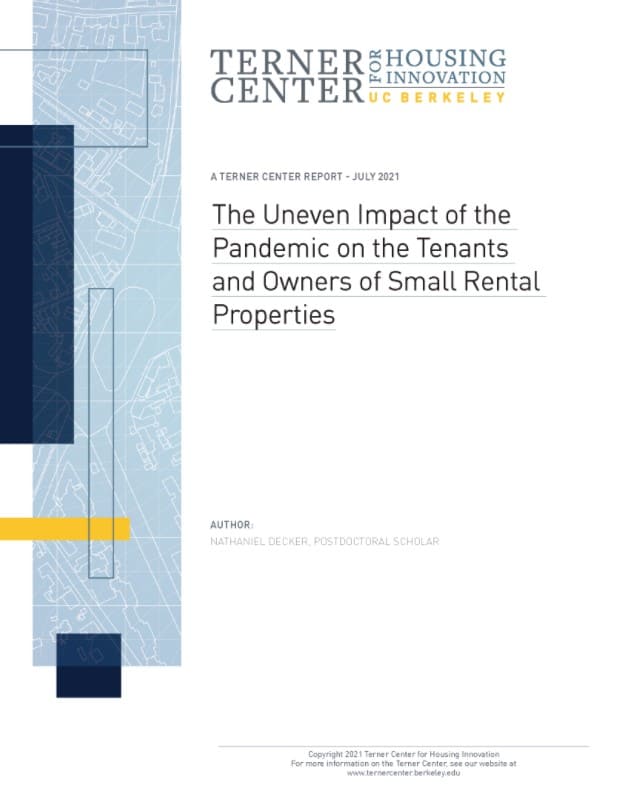Lost rental revenue tied to the COVID-19 pandemic has prompted some small-scale housing providers to make moves toward selling their property, a development that could compromise the nation’s stock of affordable units.
This is a key takeaway from a study released this week by the Terner Center for Housing Innovation.
The study, “The Uneven Impact of the Pandemic on the Tenants and Owners of Small Rental Properties,” draws from a national survey of rental housing providers and tenants at properties with one to four units. About half of U.S. renters live at properties in this size range, 75% of which are managed by the owners themselves. The report represents the responses of 1,690 owners and managers in large and mid-sized U.S. metropolitan areas.
The report indicates about 15% of tenants fell behind on their rent by six or more months, with median arrears of roughly $2,200 and about one-third behind by $4,000 or more. Roughly 30% of small property owners experienced a drop in rent revenue exceeding 10% last year.
“For some owners, the drop in revenues led to significant financial distress, leading them to take steps to sell their property,” the report says. “The owners of about 13 percent of the units covered in the survey said that they were forced to take steps to sell off one or more units as a result of the pandemic.”
An analysis of the report calls the pressure to sell an “emerging and troubling trend.”
“This part of the housing stock is home to most unsubsidized low-income families, particularly families with children,” the study says. “Yet the vast majority of small rental properties are held by individuals, not large companies, and many of these owners do not have the financial cushion to absorb many months of rent non-payment. … Furthermore, small rental properties are a large source of naturally occurring affordable housing, and sales of units may deplete this critical resource.”
Owners with nonpaying tenants also voiced concerns that some renters were exploiting the moratorium. Twenty-nine percent said they have tenants who are not paying their rent — even though they have the money to do so. This complaint was more common among owners with tenants owing large amounts of back rent.
“In those cases, owners reported in follow-up interviews that they felt galled by the feeling that their tenants were not even trying to make rent and that they, as the owner of the property, had no means to address the problem of missing rent,” the report says.
The analysis says emergency rental assistance could help stem an exodus from the market and loss of affordable housing stock, however, a lack of awareness of rental aid programs remains a major challenge.
“Large numbers of respondents, including those with COVID-19-related rent delinquencies, have never examined emergency rental assistance programs, and in some cases are unaware such programs exist,” says an analysis of the report.
Rental housing providers and tenants can learn about California’s rental assistance program by clicking the button below.

